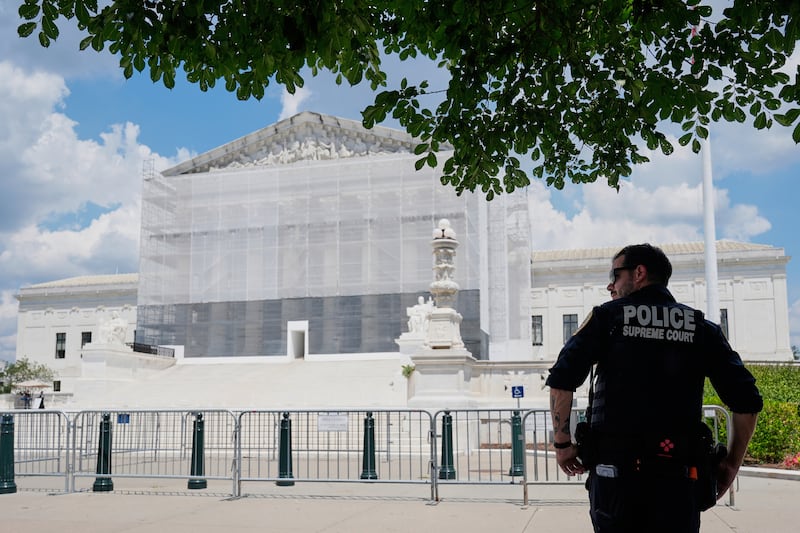The state of West Virginia and religious groups are asking the U.S. Supreme Court to step in after the 4th U.S. Circuit Court of Appeals issued an injunction blocking the Save Women’s Sports Act from going into effect.
The state Legislature passed the bill in April 2021. The text clarifies that athletes in any public secondary school or state institution of higher education can only participate on sports teams that align with their biological sex.
“There are inherent differences between biological males and biological females,” the bill states. “Biological males would displace females to a substantial extent if permitted to compete on teams designated for biological females,” and “gender identity is separate and distinct from biological sex to the extent that an individual’s biological sex is not determinative or indicative of the individual’s gender identity.”
Soon after the bill passed, a transgender student, Becky Pepper-Jackson, filed a lawsuit with the American Civil Liberties Union and Lambda Legal, arguing that federal civil rights law, Title IX, and the Equal Protection Clause of the 14th Amendment, prohibit the state from blocking transgender athletes from participating in female sports.
But groups like Becket, a nonprofit law firm and educational institution that defends religious beliefs, argue that Title IX does not address gender identity. In an amicus brief filed last week to the U.S. Supreme Court in support of West Virginia, Becket attorneys argue that redefining sex will threaten religious freedom — an issue, they say, that has already affected religious groups.
The nonprofit argued that after the 2020 decision in Bostock v. Clayton County, which extended Title VII of the Civil Rights Act of 1964 to cover gender identity/sexual orientation in employment, religious schools faced waves of lawsuits over hiring and firing decisions tied to their beliefs about sexuality and marriage. They also claimed a similar litigation surge would hit religious schools under Title IX if the court adopts Bostock’s reasoning.
“The Court should do whatever it can to avoid hanging yet another millstone around the necks of religious employers who seek to create faithful workplaces and religious schools who seek to instill their faith in the rising generation,” Becket’s friend-of-the-court brief said. “Any ruling that Title IX covers sexual orientation and gender identity will unleash a new tidal wave of litigation, with federal, state, and local agencies doubling down on their attempts to force religious organizations either to conform or to be ousted from the public square.”
The Supreme Court has agreed to hear the case.
The legal battle has received national attention over the years, including from All-American swimmer-turned-activist Riley Gaines, who often shares her concerns about transgender athletes competing in women’s sports after competing against transgender athlete Lia Thomas during her senior year of college.
She posted a video on X last year of Pepper-Jackson, who competed in middle school shot put in West Virginia. Five students refused to participate in the competition against Pepper Jackson.
“This comes just 2 days after the Fourth Circuit Court of Appeals blocked the WV law that says you must compete in the category that matches your sex,” Gaines said. “It’s a sad day when 13-14yr old girls have to be the adults in the room, but I couldn’t be more inspired by and proud of these girls.”



